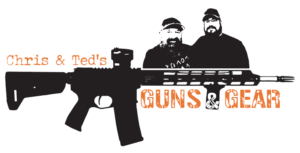 As we near the end of summer, most of us are looking forward to the cooler months ahead and if you are anything like me, you are looking forward to getting back out to the range.
As we near the end of summer, most of us are looking forward to the cooler months ahead and if you are anything like me, you are looking forward to getting back out to the range.
Yes, we can train indoors in the AC, but if you like to shoot as much as I do, you know it is not the same and the outdoor ranges are just flat out more enjoyable.
As we prepare for our range days, it is always good to have a plan. I mean anybody can just go out and fire off some rounds, but are you improving? Are you practicing good fundamentals? Are you practicing with likely scenarios?
If you cannot answer yes to those questions, are you really getting the most out of your firearm, and more importantly, your expensive ammo? When Ted and I go to the range, we try to focus on two-to-three things that we want to work on while we are there and keep it simple.
First, we decide what type of weapon we are going to focus on. It is easy to take every single firearm you own to the range, but if you are not planning to shoot the shotgun, why take it? Keep it simple.
Ask yourself these simple questions:
1.) Concealed – am I going to work on my concealed carry, drawing from the holster, or threat assessment?
2.) Speed – am I working on my trigger reset, recoil control, or target acquisition speed?
3.) Accuracy – am I working on my accuracy at distance or at defense distances?
4.) Zero – do I need to sight in a new sight system (irons, red dot, scope, etc.).
Second, I need to prepare for that type of training. What type of range do I need? What type of ammo? What type of gear, and what type of targets? For instance:
Range: Long distance, short distance, can I draw from a concealed? Is the firing line sufficient for my needs? Do they allow fast shooting there? What type of target systems do they provide/allow? Some ranges have rules against some of these things, so it is always a good idea to research before you go.
Speed Training: Do I know how to improve my speed? Do I have a shot clock? Will the range allow for rapid fire (not full auto, just rapid trigger pulls)? Do I need some instruction on techniques, should I complete some dry fire drills first, etc.?
Accuracy: Are my fundamentals sound? Do I have good trigger control, breathing control, consistence sight picture, maybe a friend with a spotter scope?
Zero: Does the range have the correct distance (preferably 1-100yds)? Does it have a target retrieval system or do I need to move down range each time? Does it have acceptable platforms to be comfortable for me and the firearm? Do I have the proper sight adjustment tools with me? Will the range allow sight adjustments while the range is hot?
These are all particularly important as you prepare because range time and ammo are not cheap. There is nothing worse than getting everything loaded up and ready then arriving to find out you’re not allowed to do what you want.
Getting ready for range day is just as critical as range day itself, so hopefully I have helped you in preparing to get the most out of range day. In the meantime, happy shooting! And remember, we are only as good as out tools.
If we do not practice, then we can never be good. And you do not ever want to miss the perfect shot in hunting, or God forbid, not be prepared to defend yourself and your loved ones, so get out there and prepare!
_______________________
EDITOR’S NOTE: Chris “Ranger” Gay is a U.S. Army veteran and the owner of 2nd Amendment Armory in Brandon, Florida.